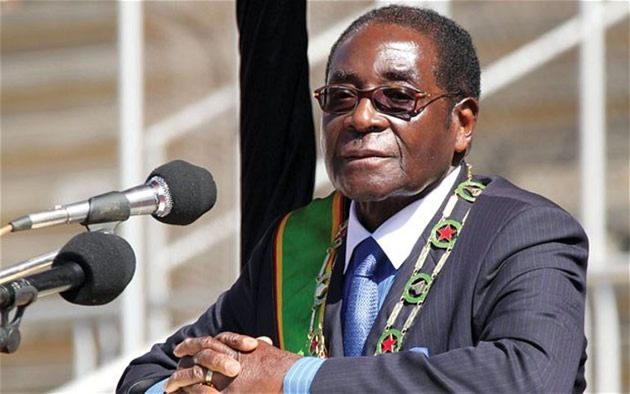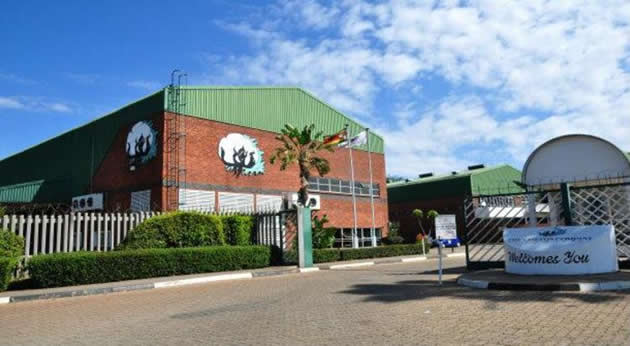Revamp tender system for economic recovery

Nick Mangwana View From The Diaspora
In his 10-point plan for economic recovery in Zimbabwe, President Mugabe alluded to the modernisation of the tender system. He said that the system is going to be devolved and fully decentralised to make it more efficient and less corrupt. He also mentioned the introduction of e-procurement. Whilst most commentators focused on the 10-point plan itself, this ground breaking development seems to have escaped commentary. But those familiar with public works would know that of all important functions of the State, procurement is right at the heart of it. Most issues of corruption have a procurement element to them. In fact, one can hardly think of a public scandal which did not have procurement as a factor.
The distance between Harare International Airport and Harare central business district (CBD) is 20km. The Ministry of Transport and Infrastructural Development advises that in road construction, the average cost is $500 000 per kilometre. This means that the construction of the road to the airport from town should have cost $10 million. So how does one explain someone approving a tender for $80 million? Where did the $70 million go to?
Let us have another example to illustrate why procurement was such a key part of the State of The Nation Address (SONA). Does anyone remember the panic that befell the City of Harare in September 2012, when highly dangerous sodium cyanide was delivered to the city for water purification at the Morton Jaffray waterworks? That was a near miss. A real national tragedy could have occurred. Someone who could not tell the difference between aluminium sulphate and sodium cyanide had been awarded a tender to handle such dangerous chemicals when they were clearly not competent to even be anywhere near a pharmacy, let alone highly toxic industrial chemicals. This was a result of a flawed procurement system.
We can go on and on. One just needs to type “Zimbabwe tender scandals” in the search engine and see how many hits would emerge. From Zesa $183 million, zinara $54 million, zimsec $2 million and the list goes on and on. These are the scandals mainly in the awarding of the tenders. There are more and worse scandals in procurement, completely eroding confidence in the system. The system should work. The system is clearly not working.
The President was on point.
You see, it is the role of Government contracts to put social policies into place. These national policies and goals are achieved through procurement, which in the Zimbabwean setting is normally known as tendering. Under normal circumstances, every procurement contract should be linked to socio-economic goals. The current system benefits the winner of the tender than those that flight the tender for the benefit of the people. A tender like the airport road construction should bring infrastructural development as well as bring the desperately needed employment.
When it comes to issues of employment, there is a need to have clear standards that one cannot have a Government contract yet have unfair labour practices. Those that ill-treat employees should never be awarded Government tenders. That includes even our good friends. It will be good if anyone who has unfair labour practices has their contracts rescinded and they are disbarred. They should immediately come off the list. There is no better place for minimum wage implementation and ethical labour practice than in a public works contract. Zimbabweans deserve to be treated well in their own country. They can’t be said to be empowered people when foreigners treat them as step-children.
The alleged abuse of Zimbabwean workers by foreign winners of tenders is happening mainly because the tenders are awarded by people that are not part of the community where that tender is implemented. So even if workers were to raise complaints in a centralised system there is no fast response because of the dislocation between those who award the tender and those that monitor it. In any case there is already a big flaw in that system, those that award the tender are not the ones that monitor the implementation. All tenders above $300 000 have to go through the State Procurement Board (SPB). But the SPB does not supervise the implementation of its decisions. Therefore even if a decision to rescind the contract was to be made it can only delay the project much further as the decision follows the monolithic chain of command all the way to the top Csar.
The President’s SONA address indicated the changing of the current system to one that is nimble, reflective of local operating dynamics as well allowing for division of labour.
This is the type of thing that allows and encourages creativity and is motivating to those involved in a devolved procurement cycle. This system will be inadequate if there is no insistence on the procurement of local materials to fulfil the contracts. One cannot shout enough for a “buy Zimbabwe” approach in procurement. Zimbabwean-made material is best used in Zimbabwe because it is suitable for the Zimbabwean climate. One only hopes that there will come a day when the nation will value that which is made by its own industry. Of course this is subject to good quality standards being applied.
Zimbabwe is known for having noble ideas, well-thought through policies on paper. The problem is that most remain just academic documents without any relationship with reality. So here we have the President articulating another noble policy underpinned by good intentions to a joint House of pretty much all elected senior politicians of our country. The nation cynically waits for our technocrats and the politicians as well to start the implementation. One might actually ask where the politicians come in the implementation of these type of policies. Well, they shouldn’t except to hold the executive to account. But sadly they do. They interfere with the whole tender system and corrupt it so much that it just becomes dysfunctional like the former system. So the nation hopes that they will not.
All the nation wants is a competitive system that delivers value for money projects in which those who don’t have capacity to see through what they are bidding for are left out. And those that deliver projects in a timely way get the tenders in a transparent way. The skill that Zimbabwe needs is not to win a tender. In the current system there are people that are now specialists in winning tenders which they then proceed to outsource.
It is the skill to properly fulfil that tender cost effectively and efficiently within the agreed turnaround times that is needed, not to just win it. Maybe for emphasis, it helps to add again that; without political manipulation, corruption and the attendant inefficiencies, the delivery of developmental projects in Zimbabwe will be improved as pronounced by the President in the SONA.
The current system is a hub of bureaucratic corruption, favouritism and patronage. The incoming system should make political accountability subservient to corporate accountability.
Perception does not have to be one with the truth to cause a great damage to a country. Zimbabwe has suffered a great deal from issues of investor apprehension and foreboding because of how she is perceived. If the new system is to make a real difference, then there is a need to be seen to be punishing all unethical behaviour. Anything bordering on illegality should be punished by prosecution of the offender. This, coupled with impartial treatment, will boost confidence in Zimbabwe’s business environment. Without that we can decimate forests writing policy documents but there will never be an achievement of the well set out objectives. And as stated earlier, procurement is there to achieve social goals set by Government.
Lack of openness and clarity probably explains why the SPB tries to avoid these appeals for reviews to the Administrative Court. Losers of tenders end up being roped together with winners to complete a project in a bid to avoid independent oversight of what informed the decision making process that resulted in the awarding of tenders. When this happens the tax paying public are the victims as the project cost becomes inflated and there is always a question of backhanders (whether real or imagined).
Maybe the advent of e-procurement as announced by the President will cut out some of these inefficiencies as well as ensure that only value for money and fit for purpose procurement is paid for. The current manual system is subject to bad time lags.
This involves the movement of physical documents between the procuring entity, the SPB and the contractor with the need for approval and counter approval. This is one of the reasons why Government projects are almost always delivered late.
As is often the case, a social project delivered late results in a delay in service delivery and a delayed economic imperative as well. Now the SPB will be focussing on developing up to date procurement manuals as well as Code of Ethics and standards and then monitoring. There is a real good chance that tucked away in the 10-point plan is also something that will make a big impact.
A decentralised system should disempower any procurement czars who were behaving like the procurement licence was a licence to procure power.










Comments